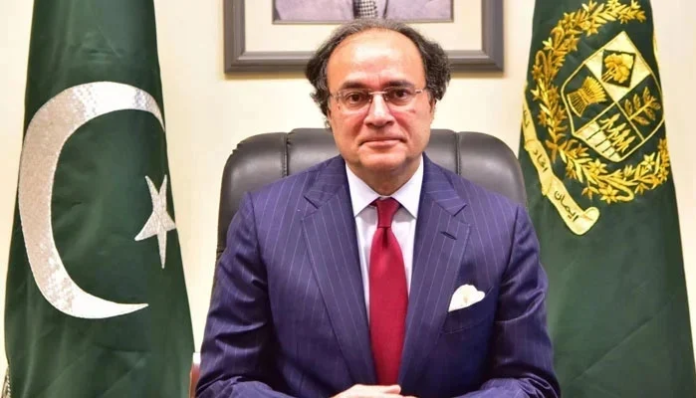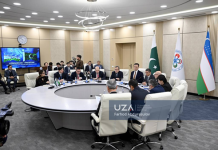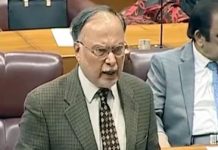ISLAMABAD, JUN 13 (DNA): Finance Minister Mohammad Aurangzeb has said that Pakistan plans to re-enter commercial lending markets, targeting $2 billion in funding this month to raise foreign exchange reserves to $14 billion.
Half of this will be guaranteed by Asian Development Bank and Asian Infrastructure Investment Bank, the minister apprised the National Assembly’s Standing Committee on Finance on Thursday.
He said that while monetary policy falls under the State Bank’s domain, he expects a rate cut in the upcoming meeting, with inflation likely to enter single digits next fiscal year.
Aurangzeb said that the government would move towards downsizing and rightsizing in Utility Stores Corporation and Passco. “I want to make it clear that the government will move towards downsizing and rightsizing these SOEs, he told the panel.
Federal Secretary Finance Imdadullah Bosal informed the committee that the government has approved a 10% salary increase for all public sector employees and a Special Relief Allowance at 50% for Armed Forces officers and 20% for Junior Commissioned Officers (JCOs) and soldiers in the 2025-26 budget.
Initially, a 6% salary hike was proposed, but the federal cabinet raised it to 10% during the budget approval meeting.
The National Assembly Standing Committee on Finance and Revenue, chaired by Syed Naveed Qamar, held its first session to review the budget and finance bill.
Minister of State for Finance Bilal Azhar Kiyani — who assumed the role after the post-budget press conference boycott by journalists (later resolved by the Information Minister) — attended the meeting.
The finance secretary briefed the committee on relief measures, including 10% salary increase for government employees, 7% pension hike, 30% Disparity Allowance to reduce pay gaps, and Special Relief Allowance at rate of 50% for officers of Armed Forces and 20% for JCOs/soldiers.
Along with hiking salaries and allowance both for civilian and military personnel, the Federal Board of Revenue (FBR) also reduced tax rates for slabs of salaried class.
The sources said that the FBR has done its working and estimated that for the first income slab earning from Rs0.6 million to Rs1.2 million, the tax rate was proposed reduction from 5% to 1% in the Finance Bill 2025-26.
In the cabinet meeting when the salary of public sector was proposed to be increased from 6% to 10% then the tax rate for first slab was jacked up from one to 2.5%. It means that the tax incidence for first slab of Rs0.6 million to Rs1.2 million was increased from Rs6,000 to Rs15,000 per year.
At the moment, the tax rate for the first slab stood at Rs30,000 per month. Now for all other slabs, Rs9,000 will be added while their rate will remain the same as proposed originally in the Finance Bill 2025-26 tabled in Parliament.
Opposition Leader Omar Ayub criticised rampant Iranian oil smuggling, causing Rs500 billion in losses, including Rs149 billion in petroleum levy evasion. He questioned Customs’ failure to curb smuggling and opposed granting FBR officers arrest powers in the Finance Bill.
The finance secretary shared all important fiscal and budgetary numbers with the standing committee.
The secretary clarified that the petroleum levy stands at Rs77–78 per litre, with an additional Rs2.5 carbon levy, bringing the total to around Rs80 per litre — with no upper cap.
The government also introduced an EV Adoption Levy on locally made and imported vehicles to generate Rs10 billion.

















